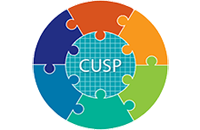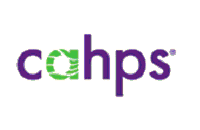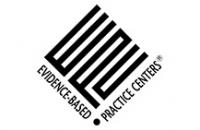National Healthcare Quality and Disparities Report
Latest available findings on quality of and access to health care
Data & Analytics
- Data Infographics
- Data Visualizations
- Data Tools
- Data Innovations
- All-Payer Claims Database
- Consumer Assessment of Healthcare Providers and Systems (CAHPS®) Program
- Healthcare Cost and Utilization Project (HCUP)
- Medical Expenditure Panel Survey (MEPS)
- National Healthcare Quality and Disparities Report Data Tools
- Network of Patient Safety Databases
- AHRQ Quality Indicator Tools for Data Analytics
- Surveys on Patient Safety Culture
- United States Health Information Knowledgebase (USHIK)
- Data Sources Available from AHRQ
Programs
The Agency for Healthcare Research and Quality (AHRQ)'s programs offer practical information to help a variety of health care organizations, providers, and others make care safer in all health care settings.
AHRQuality Indicators™
The Quality Indicators are measures of health care quality that use readily available hospital inpatient administrative data. AHRQ develops Quality Indicators to provide health care decision makers with tools to assess their data.
Clinical Decision Support
In 2016, AHRQ launched a program of grants and contracts aimed at helping health care providers move patient-centered outcomes research evidence into practice through clinical decision support (CDS). AHRQ advances the science of CDS by supporting implementers, clinicians, and technology vendors in developing CDS tools that are shareable, standards-based, publicly-available, and patient-centered.
Comparative Health System Performance (CHSP) Initiative
AHRQ created the Comparative Health System Performance Initiative to study how health care delivery systems promote evidence-based practices in delivering care. AHRQ’s goal is to understand the factors that affect health systems’ use of patient-centered outcomes research and to identify best practices in disseminating and using patient-centered outcomes research.
Comprehensive Unit-based Safety Program (CUSP)
The Comprehensive Unit-based Safety Program is a patient safety model that includes training tools to make care safer by improving the foundation for how physicians, nurses, and other clinical team members work together. It builds the capacity to address safety issues by combining clinical best practices and the science of safety.
Consumer Assessment of Healthcare Providers and Systems (CAHPS®)
Consumer Assessment of Healthcare Providers and Systems (CAHPS®) surveys ask consumers and patients to report on and evaluate their experiences with health care. Surveys cover topics important to consumers and focus on those aspects of quality that consumers are best qualified to assess, such as the communication skills of providers and ease of access to health care services.
Diagnostic Safety and Quality
AHRQ is the lead Federal agency investing in research to improve diagnostic safety. AHRQ invests in research to discover findings that advance the knowledge of diagnostic safety and to develop practical tools and resources to improve diagnostic safety.
Evidence-based Practice Centers Program
The Evidence-based Practice Centers (EPC) Program sponsors the development of evidence reviews to assist public- and private-sector organizations in their efforts to improve the quality of healthcare in the United States. These reviews examine the benefits and harms of medications, devices, and other healthcare services, and support the Effective Health Care Program, Technology Assessment Program, and the U.S. Preventive Services Task Force. The EPCs are located at universities, medical centers, and research institutions in the United States. The EPC Division at AHRQ sets the strategy and priorities for the EPC Program, and manages program operations, contracts, grants, and training.
EvidenceNOW
The EvidenceNOW Initiative includes a series of projects that all use the EvidenceNOW model of external support to help primary care practices implement evidence into practice. This support includes practice facilitation, expert consultation, and other services to improve quality of primary care. Current projects include support of primary care practices to advance heart health, manage unhealthy alcohol use, manage urinary incontinence in women, and build state capacity to advance equity in heart health.
Healthcare Cost and Utilization Project (HCUP)
HCUP (pronounced "H-Cup") is a family of health care databases and related software tools and products developed through a Federal-State-Industry partnership and sponsored by AHRQ. HCUP databases bring together the data collection efforts of State data organizations, hospital associations, private data organizations, and the Federal Government to create a national information resource of encounter-level health care data (HCUP Partners). HCUP includes the largest collection of longitudinal hospital care data in the United States, with all-payer, encounter-level information beginning in 1988. These databases enable research on a broad range of health policy issues, including cost and quality of health services, medical practice patterns, access to health care programs, and outcomes of treatments at the national, State, and local market levels.
Healthcare-Associated Infections (HAIs)
AHRQ’s HAI program funds work to help frontline clinicians and other health care staff prevent HAIs by improving how care is actually delivered to patients. This work is accomplished through a robust portfolio of grants and contracts that focus on applied research. This kind of research brings knowledge to the front lines of care faster by helping clinicians and staff better understand how to apply proven methods of making care safer.
















